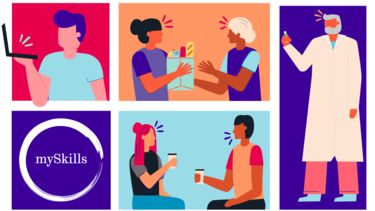Using AI and GenAI to find information
AI and Generative AI tools can be used to find information and to assist you with developing effective search strategies. However, it is important to be critical of the results you get from these tools and you will benefit most when using them alongside established methods for finding information.
On
Using AI and GenAI to find information
Access the online tutorial or attend the workshop below to explore using AI and GenAI to find information. The tutorial and workshop cover:
- The current capabilities and limitations of Generative AI chatbots for finding information.
- How to use Google Gemini to enhance and troubleshoot a search strategy.
- Currently available AI-powered functionality in academic databases.
- The current capabilities and limitations of “academic” AI chatbots for finding information.
- The value of established approaches to finding information and how to access further support on how to use them.
Start the online tutorial - Using AI and GenAI to find information
Using AI and GenAI for information searching workshop
Next steps
Further Resources

mySkills
Use your mySkills portfolio to discover your skillset, reflect on your development, and record your progress.
